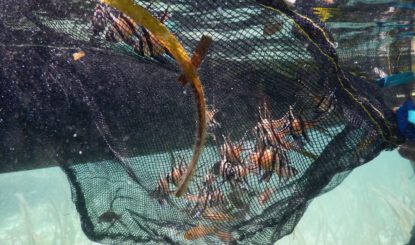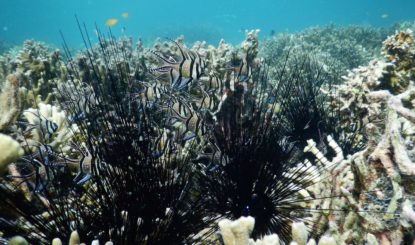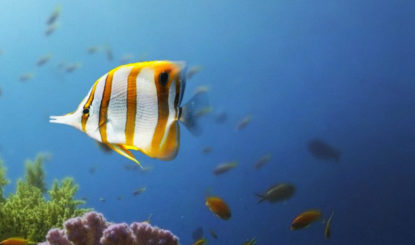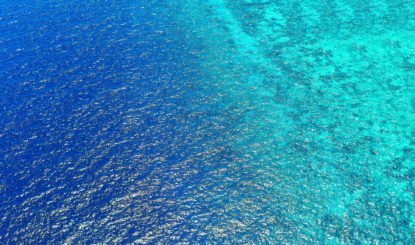CITES – The aquarium industry under the microscope
The oceans are becoming increasingly polluted and natural marine habitats are disappearing fast. Climate change and excessive fishing are additional threats to the survival of fishes, as is the capture of fishes for private and public aquariums.
There are around 1,000 public aquariums and at least 2 million private aquarium owners in the world. This demand by the aquarium industry can only be met by taking increasing numbers of fishes out of the sea. The vast majority are taken wild from coral reefs since most of the coral reef fishes cannot be bred in captivity – this fact alone means they are not suited to captivity.
Coral reef fishes, which are much sought after by the aquarium industry, are often captured in the wild using poison such as cyanide. Not only is the survival rate after capture and transportation very low, but their natural habitats are also adversely affected by this fishing method. This is not to mention the devastating impact on the whole ecosystem when eradicating a species from a habitat in which it belongs, and in which it is perfectly integrated.
FFW’s recent victory against the large aquarium project «Ozeanium» in Basel, which was rejected by the people of Basel on 19 May 2019, is a first important step towards stronger protection of the oceans. However, the aquarium industry continues to decimate coral fish populations and destroy their habitats.
As of today, the international trade in coral reef fishes is virtually unregulated. Only a group of species, seahorses, and two species of fishes – the napoleon fish and the clarion angelfish – are protected by the Convention on International Trade of Endangered Species (CITES). Consequently, there are hardly any requirements with regard to capture, handling, transportation and keeping facilities. There is also an abysmal lack of data on the biology and ecology of coral reef fishes, and on the trade’s impact on marine ecosystems. In short, it is currently impossible to monitor and control the trade in coral reef fishes for the aquarium industry or to assess its impact.
FFW wants to change this catastrophic situation. Therefore, the foundation presented the research conducted by Dr. Monica V. Biondo, a marine biologist specialising on the trade of marine ornamental fishes, to various member countries of CITES. The aim was to highlight the need for
an urgent study of this trade’s impact on species and natural habitats. Switzerland, the European Union and the United States were convinced of the significance of the data presented to them. Subsequently, these Parties have submitted a document for the next CITES Conference of the Parties (CoP18), which will be held in August in Geneva, to request a thorough investigation into the international trade of coral reef fishes. The Parties to the Convention will then consider whether to commission a study, which may in the future lead to recommendations for better international protection of coral reef fishes.
As an official observer at the CITES CoPs for the past thirty years, Fondation Franz Weber will closely monitor the debate on this issue.
FFW will also monitor developments on the Banggai cardinal fish, an Indonesian coral reef fish species that is severely threatened by the aquarium industry. This small fish, which is only found in a small area in Indonesia and whose populations have decreased by more than 90% due to their high demand from the aquarium industry, was placed by FFW on the agenda of the last CoP (September 2016, in Johannesburg).
Although the species was not granted an official protection by the CoP, Indonesia was obliged to take firmer measures to protect the species. At the upcoming CoP (CoP18), the CITES Animal Committee will report on Indonesia’s progress in this regard.
The question is: Will the Parties at CoP18, who will also decide on the future of the African elephant, finally find the courage to take decisions to restrict the international and damaging trade in species already heavily threatened by climate change and habitat loss? The loss of habitat and global warming already pose very serious threats to marine life without adding the unnecessary pressure of trade!




